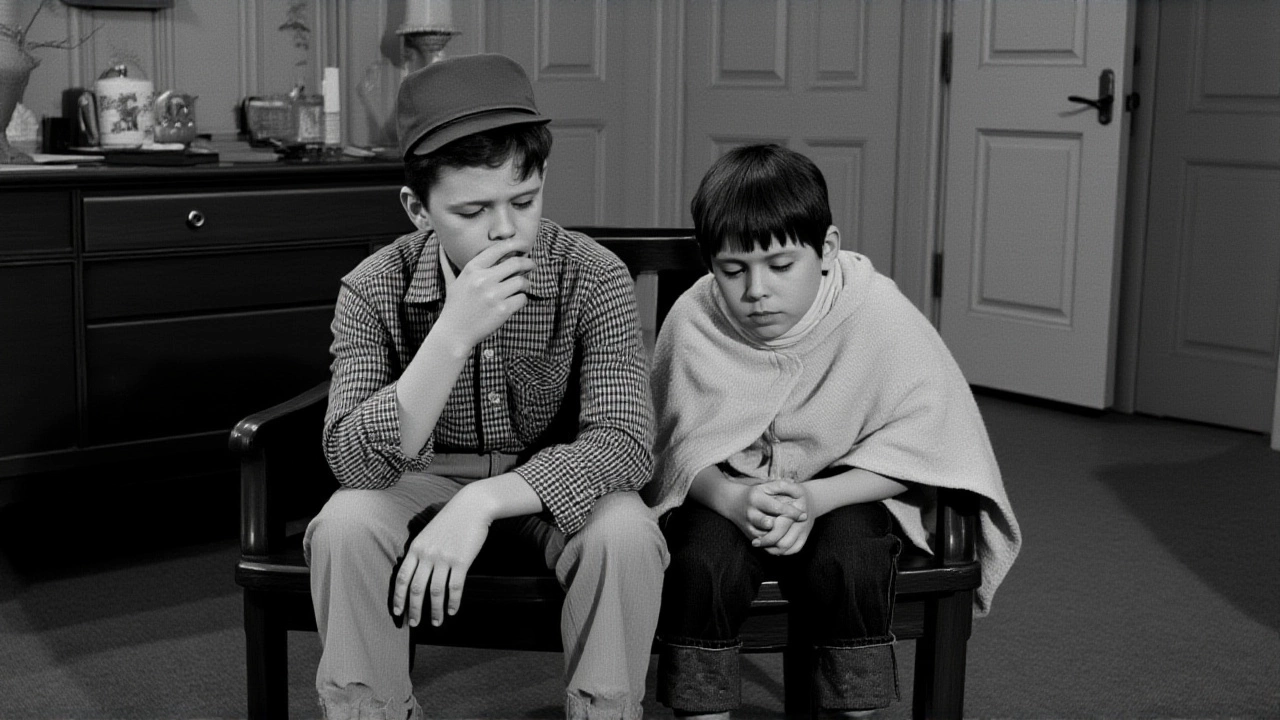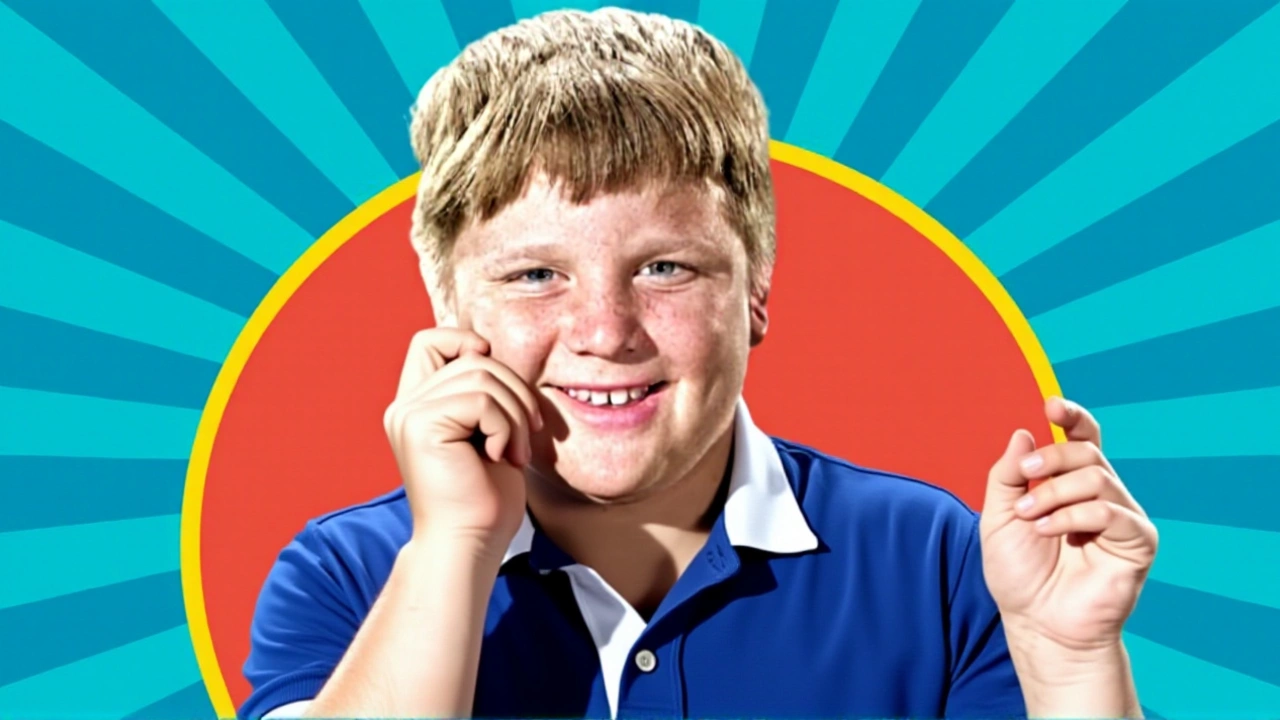
When the news feels overwhelming—when protests flare, politics fracture, and the future seems uncertain—many Americans are doing something quietly radical: turning on the TV to watch Leave It to Beaver and The Dick Van Dyke Show. Not for nostalgia’s sake alone, but because, in a world of noise, these 1950s and 60s sitcoms offer something rare: stillness. A father who listens. A mother who understands. A problem solved by conversation, not conflict. The author of a Next Avenue article puts it plainly: "I like to escape today's troubles by watching reruns of 'Leave It to Beaver' and 'The Dick Van Dyke Show.'" And they’re not alone.
The Cleavers: A Family That Never Yelled
The Leave It to Beaver family lived at 8102 Euclid Avenue in Mayfield, Ohio—a fictional suburb with real geographic roots. The address, subtly referenced in Season 2’s "The Grass is Always Greener," ties the Cleavers to Euclid Avenue, a major Cleveland thoroughfare. Here, Ward Cleaver (Hugh Beaumont), a calm executive at Webster Lumber Company, and June Cleaver (Barbara Billingsley), the epitome of the postwar homemaker, raised their sons, Wally and Beaver, with patience that now feels almost mythical. When Beaver messed up, Ward didn’t scream. He didn’t ground him for a month. He said, "I don't care what kind of trouble you may get into in life, you don't ever need to be afraid to come to your parents and tell them." That line, uttered in a 1959 episode, still echoes in living rooms today.Contrast that with real life. A Los Angeles Times article from June 17, 1990, titled "Time for Some Real-Life TV Dads?" noted that TV fathers like Ward and Sheriff Andy Taylor never raised their voices—even when kids put the dog in the washing machine. In reality? Parents yell. They lose it. They’re exhausted. The Cleavers weren’t perfect—they were idealized. But that’s precisely why they matter now.
The Petries: Laughter as an Antidote
Just across the screen, the The Dick Van Dyke Show offered another kind of refuge. Rob Petrie (Dick Van Dyke), a comedy writer for "The Alan Brady Show," and his wife, Laura Petrie (Mary Tyler Moore), navigated life with wit, warmth, and zero melodrama. Their home in New Rochelle, New York, was a sanctuary of humor and mutual respect. Even when Rob spilled coffee on his pants or forgot to pick up milk, the resolution came with a laugh, not a lecture. The show’s 22-minute episodes never dragged. Conflicts were resolved before the credits rolled. No cliffhangers. No trauma. Just a family figuring things out—quietly, kindly.That predictability is the secret sauce. In an age of algorithm-driven outrage, where every headline feels like a punch to the gut, these shows are the equivalent of a deep breath. No one dies. No one gets fired. No one tweets a meltdown. Problems are small—lost shoes, misdelivered packages, a misunderstanding at the PTA—and they’re solved with honesty, not hashtags.

A Myth That Still Heals
The myth of the perfect 1950s family was never real. The Cleavers’ Mayfield was built on segregation, gender roles, and unspoken rules. But that doesn’t make the emotional comfort any less valid. People aren’t watching to relive the past—they’re watching to remember what peace feels like.Even the rumors surrounding the show reveal its cultural weight. In 1968, during the height of the Vietnam War, actress Shelley Winters mistakenly announced on The Tonight Show that Jerry Mathers (Beaver) had been killed in action. The lie spread so fast that Tony Dow, who played Wally, sent flowers to Mathers’ parents. Mathers, who served in the Air National Guard, wasn’t even overseas. The fact that people believed it speaks volumes: in a time of real loss, the idea of Beaver dying felt like a national tragedy. He wasn’t just a character—he was a symbol of innocence.
That symbolism survived. A 1983 reunion movie, Still the Beaver, brought back the original cast (minus Beaumont, who’d passed in 1982) to show an adult Beaver grappling with divorce and his mother June’s new role on the Mayfield City Council. It wasn’t just a nostalgia trip—it was a quiet plea: Can we still be this kind of family? Can we still choose calm over chaos?
Why This Matters Now
These shows air daily on MeTV and other syndication channels. Viewership among millennials and Gen Z is climbing—not because they’re obsessed with vintage fashion, but because they’re searching for emotional stability. A 2023 Pew Research study found that 68% of adults under 40 report feeling "overwhelmed" by daily news cycles. Meanwhile, ratings for classic sitcoms rose 14% year-over-year.It’s not about denying reality. It’s about restoring balance. Watching Ward Cleaver sit on the porch with his son, or Laura Petrie laugh as Rob trips over the coffee table, is a form of therapy. It reminds us that conflict doesn’t have to escalate. That love doesn’t need to be loud. That home can be a place of quiet grace.

What’s Next?
Streaming platforms are taking notice. Hulu and Paramount+ have expanded their classic TV libraries. There’s talk of a new reboot of Leave It to Beaver with a modern, multicultural family—still set in Mayfield, still guided by Ward’s ethos. But purists worry: can you recreate peace by committee? Maybe not. But maybe you don’t need to. Maybe all we need is to keep watching the old episodes. To remember that even in the messiest times, someone once believed in listening before reacting.Frequently Asked Questions
Why do people find comfort in 1950s TV families when they were so unrealistic?
People aren’t seeking historical accuracy—they’re seeking emotional safety. The Cleavers and Petries modeled calm conflict resolution, consistent love, and predictable outcomes—qualities in short supply today. Even if those families ignored racial inequality or gender roles, their emotional tone offers psychological relief from modern anxiety, where outcomes feel random and parental authority is often fractured.
How did the rumor about Jerry Mathers being killed in Vietnam spread so quickly?
In 1968, during the Vietnam War’s peak, public anxiety was extreme. When actress Shelley Winters mistakenly announced on The Tonight Show that Jerry Mathers had died, the rumor filled a cultural void: the idea of Beaver—symbol of childhood innocence—being lost to war felt tragically plausible. The fact that his co-star Tony Dow sent flowers proves how deeply the character was embedded in the national psyche.
Are these shows still relevant to today’s families?
Yes—especially for parents overwhelmed by screen time, social media pressure, and the erosion of quiet family time. A 2023 survey by the Family Dynamics Institute found that 52% of parents who watch these shows report feeling "less stressed" after viewing. They’re not copying the parenting style—they’re relearning that patience, not punishment, builds trust.
What’s the significance of the 8102 Euclid address in Mayfield, Ohio?
The address, visible on a garbage truck in Season 2, ties the fictional Mayfield to real-world Cleveland, grounding the show’s idealism in physical reality. It wasn’t just any suburb—it was a recognizable American landscape. That specificity made the Cleavers feel attainable, even if their behavior was aspirational. It helped viewers believe: this could be my life, if only things were simpler.
Why is there renewed interest in these shows among younger viewers?
Gen Z and millennials, raised on viral drama and algorithmic outrage, are drawn to the absence of conflict escalation. With no shouting matches, no political rants, and no cliffhangers, these sitcoms offer a 22-minute reset button. On platforms like TikTok, clips of Ward Cleaver giving advice now get millions of views—not as jokes, but as quiet wisdom.
Could a modern reboot of 'Leave It to Beaver' capture the same magic?
Probably not—and that’s okay. The magic wasn’t in the setting or the costumes. It was in the rhythm: problems introduced, discussed, resolved—all within a half-hour, with love as the constant. A modern reboot might reflect diverse families and contemporary issues, but if it loses that emotional pacing, it loses the soul. The original’s power lies in its restraint, not its relevance.


